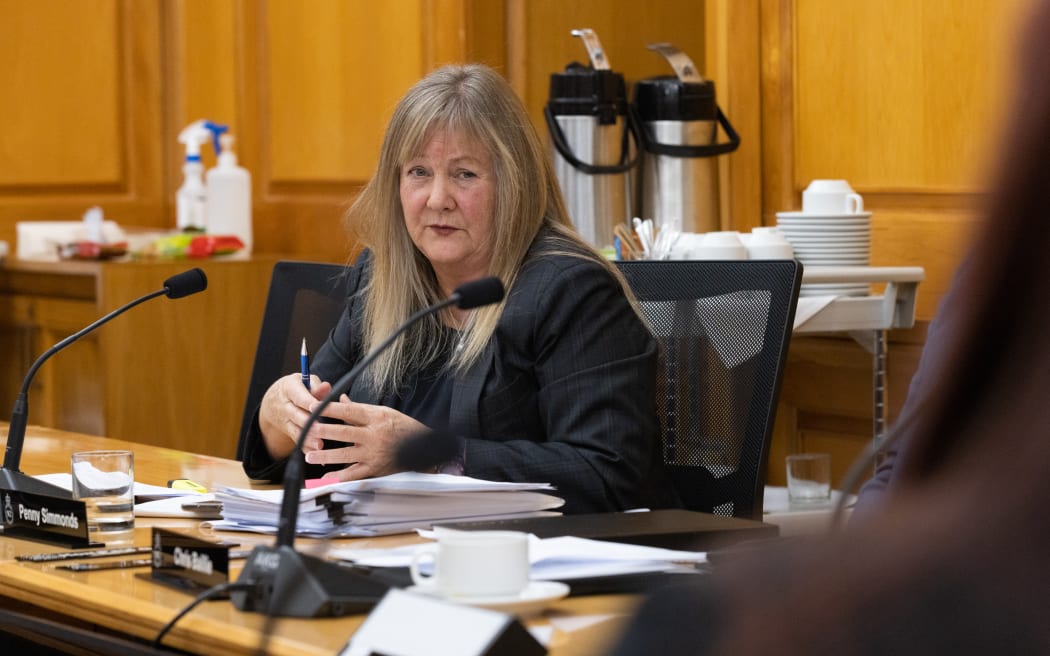
Tertiary Education Minister Penny Simmonds says reverting to the previous funding system will improve polytechnics' financial viability. Photo: Phil Smith
The government expects some polytechnics might have to make job cuts even after it dissolves the super-institute Te Pūkenga.
It hopes to improve the sector's financial performance by axing the new polytechnic funding system from 2025 and returning to the previous system and it will also try to encourage more foreign student enrolments.
Sector insiders are sceptical about the financial future of polytechnics given the big losses they made before and after their amalgamation into Te Pūkenga following falling enrolments.
Meanwhile, Te Pūkenga managers were due to report back to Tertiary Education Minister Penny Simmonds on Friday on the first steps to restoring local leadership to its 16 polytechnics.
Simmonds said she wanted local management in place early next year, even if it was initially only on an interim basis.
RNZ understands that would require a lot of new appointments because Te Pūkenga removed many management roles from local polytechnic campuses.
Simmonds indicated people who formerly held leadership roles in polytechnics were offering to step back into local jobs.
"I've had a huge number of people that have been in contact with me over the past few months with significant experience and history at the various campuses who are all putting their hands up and saying they want to be involved with getting things back on track," she said.
She would not confirm if former chief executives were among those offering to return to local management positions.
Simmonds said local management would decide if the hundreds of redundancies Te Pūkenga had planned for April should go ahead.
"I would hope that we've got a process in place very shortly after Christmas where decisions can start being made at a local level and whether those redundancies continue or not will be very much at the need and the ability of the local level," she said.
"It's really important that the positions that need to be kept and can be afforded to be kept, the decisions are made at a local level not at that head office level where they perhaps didn't understand what the needs were regionally."
She said reverting to the previous funding system would improve polytechnics' financial viability.
The current system, the Unified Funding System, significantly increased funding rates for workplace learning but decreased funding for the on-campus and distance learning offered by polytechnics.
"I have asked my officials to provide the pathway to changing from the Unified Funding scheme back to the SAC, the student component scheme, by 2025 so that will resolve some of the financial pressure," she said.
She said she also intended to lead overseas delegations to encourage more foreign enrolments.
But Simmonds said she it was possible some institutes would still have to make cuts.
"There is going to be improvements in the revenue streams for the polytechnics, but there will still be polytechnics that have to make some changes and have to do some downsizing if their numbers don't work so we're not resiling away from that. That was there before Te Pūkenga was pulled into place and I'm not convinced that was addressed in the right areas once Te Pūkenga came into being."
Simmonds said the new government would keep aspects of centralisation where it made sense, such as developing new courses and complying with regulations.
"I am not going to throw the baby out with the bathwater. Where there are sensible things that we can do better and more cost-effectively by doing them joined-up then we will. And there will be some economies of scale working together. But not a big centralised head office making decisions. That's where the fault lay," she said.
Simmonds said she hoped the sector would be stable by 2027.
"I'm hoping that we will get certainty around the shape of the sector by mid to three-quarters of the way through next year, have the new sector form starting 1 January 2025 and I would expect within two years after that we need to have good stability, good financial stability, good academic stability."
Reintroduction of industry training organisations
Sector insiders have told RNZ the polytechnics' viability is doubtful without the support of the workplace training organisations that joined them in Te Pūkenga.
Recent financial reports showed the institute's workplace learning section was profitable but its polytechnic division was not and RNZ understands polytechnics would make significant deficits again this year.
Simmonds said she wanted to reintroduce industry training organisations (ITOs) but with stricter controls than in the past over what they could and could not do.
"The ITOs will exist. They will exist within a centralised entity because I think one of the important things was having that seamlessness between the polytechnics and the ITOs. The ITOs I'm expecting will have the standard-setting roles back to them because I think that's what they do really well.
"I don't expect the ITOs to be doing their own delivery but they will of course be working with the polytechs. In some instances they will do on-job assessing, in some instances, they will contract polytechnics to do that, but I want the movement to be seamless."




